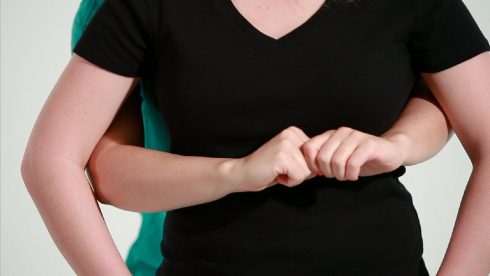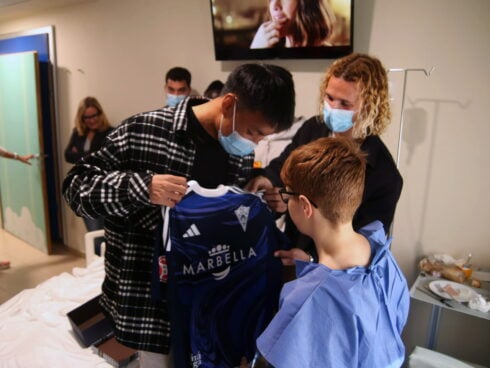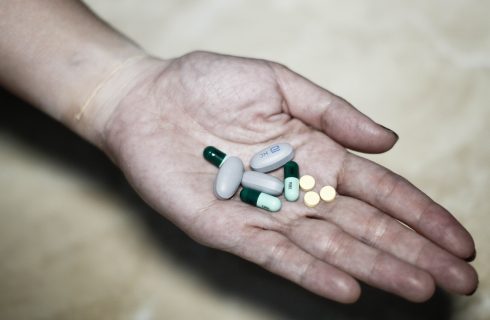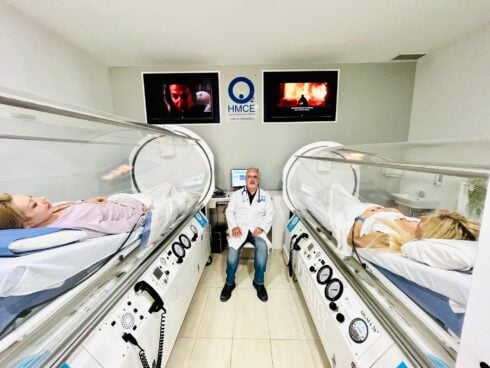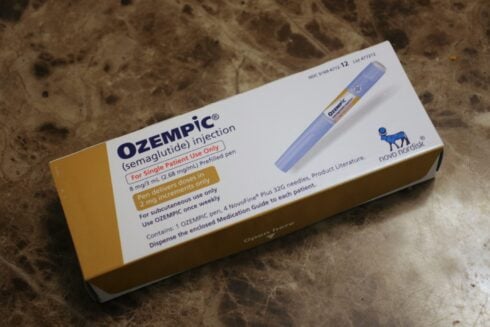IT is probably the worst time to be going to a wellman clinic: Just after the festivities, which in Spain run till the night of the Reyes, the three kings, who arrive with even more bundles of calories and alcohol units on the night of January 6.
So heading into Gibraltar from the Costa del Sol in mid-January (only a ‘dry-ish’ January for me, being a near-suicidal Spurs fan) was with some serious trepidation.
The reasons though, to have an annual Well Man check in Gibraltar are many-fold.
READ MORE: Three signs your heart health is at risk, according to leading Spanish doctor
First and foremost you are dealing with British doctors and nurses, which when it comes to health matters is almost a redline for many expats here in Spain.
Even for those, like me, who speak Spanish, it is so much more comforting to learn about when and why you are going to die in your mother tongue.
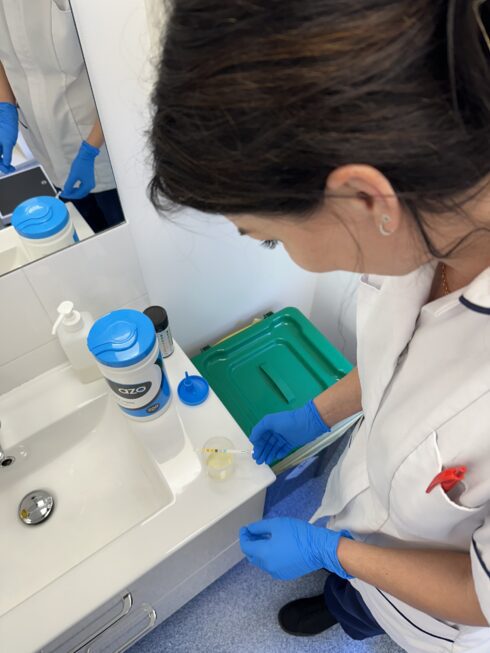
Yes, of course there are plenty of doctors in the private hospitals around Marbella and Mijas who speak English, but it’s not the same as speaking to a GP, who has dozens of years of experience in health matters in your own country.
Thankfully, there is one entirely standalone clinic that offers this service in Gibraltar, the Gib Med International Hospital.
For just over 400 euros I was offered the following:
- Well Man Screening (including exercise ECG if required)
- Full Well Man Health Assessment (including exercise ECG if required)
- Stroke screening
- Cancer screening (Bowel, Prostate, Lung)
- Aneurysm screening
A full comprehensive look at one’s overall health, it seemed like a no-brainer, particularly since the hospital recently expanded to include two operating theatres, under the watchful eye of celebrated British-trained consultant general surgeon David Deardon (below).
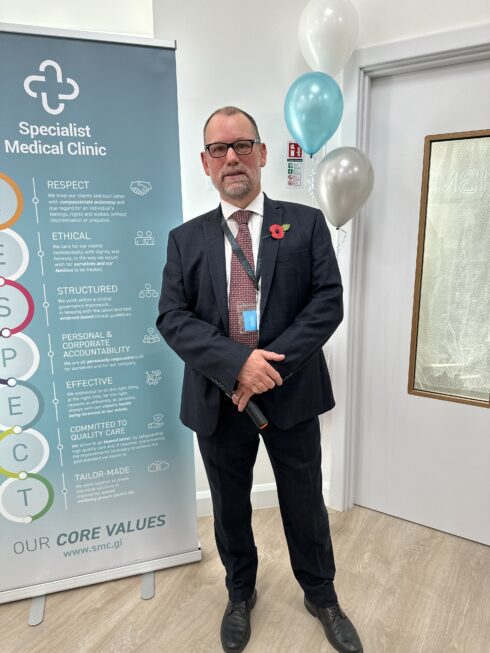
Getting into Gibraltar was an incredibly fluid process, despite what you may have heard, and once across the border it was just a ten minute walk to the hospital on historic Casemates Square.
It was even easier at the clinic and I was in and out on my first first visit in an hour having had all my vitals examined by a nurse and with a quick chat to a GP.
Yes, you need to have blood tests and you also need to provide urine and poo, which can be done at your leisure over the course of a gentle morning, having a look around the Rock.
Today, there is also a new simple litmus test that is dipped in your urine to see if you’re suffering from any of the key illnesses that may be a concern. Thankfully for me, there wasn’t.
My nurse Antonia worked for many years in the British health service before moving to Gibraltar a few years ago.
She was incredibly warm and friendly and gave me loads of health tips and information about what the clinic was going to be looking for.
In particular, I told her about the problems I was having with nasal breathing since I caught Covid badly two years ago and it was sometimes messing with my sleep.
She told me she had the exact same problem, and it was no doubt long-Covid I was suffering from, quickly offering me a bit of practical advice that I can say I am now following seeing some improvements.
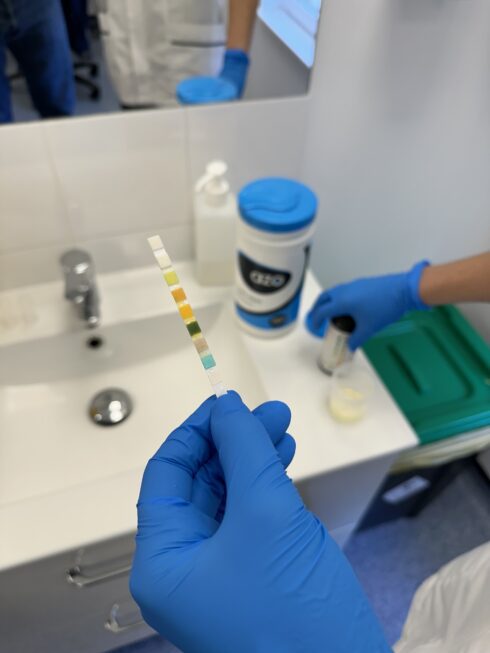
Next I was passed on to the GP Dr Aaron Dehghan, a Mancunian, who asked me a few questions about any health concerns and what I was worried about generally.
This was only a brief meeting, as the main discussions were to be held two weeks later once the results had come back.
On my return last week, Dr Dehghan got straight down to business pulling out his charts and pointing at his computer.
The good news was I’m going to live till 100-plus… that is if I give up alcohol, start walking two hours a day, and limit my chocolate intake to just one line of dark, and no more than twice a week.
Being realistic, the main concern for the genial doctor, who moved to Gibraltar last year from Oxford, was my weight and my need for better sleep… which likely linked to my alcohol intake, which he insisted was ‘too high’ (not helped by the festive period, as I pointed out).
“You really need between seven and eight hours a night,” he explained. “The crux is if your sleep problem is a nasal issue and a dry mouth, it’s quite a simple thing to fix.”
He then took me through a procedure using salt water spray and a steroid nasal spray and said I would need to do it religiously for six to 12 weeks. “And most people do it wrong and end up spraying the nose rather than the sinuses.”
He had the exact same problem after he broke his nose ‘bumping into a tree’ no less and spent three months following the procedure to cure it.
He told me that high alcohol content and snacking at night was also putting a strain on my body and I should try and lose five kilos of weight.
“The idea of a glass of wine a day is a myth,” he insisted. “There really isn’t a safe limit. Yes, there is a social element of alcohol, but you need to monitor it.
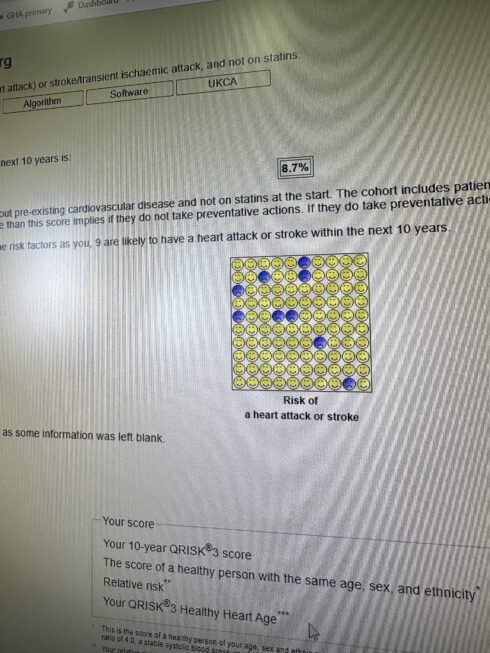
“The more you drink the more you’ll get high blood pressure, excess weight, the risk of liver issues, cardiovascular issues and even dementia, as it has toxins which go to the brain.”
It was certainly sobering. And particularly, as he insisted, I could only have a bottle and a half of wine a week – around 14 units – and ‘ideally spread out over the week’.
While he was happy with my attempt to get 8,000 to 10,000 steps of exercise a day (‘great for cardiovascular health’) he recommended some strength and balance training.
“You do need to keep building muscle, weights if you like it, but also pilates or yoga, which also has a calming effect on the body,” he said. “Above all a variety of exercise is important.”
Thankfully, despite my age, I am not pre-diabetic and my blood and poo tests were good (no signs of cancer or prostate issues), but my cholesterol was a concern and I really needed to get it down. I told you it wasn’t a good time to visit after the Christmas break.
So bad was it that he told me my heart was currently of a man some five years older (61) and I had an 8.7% chance of a heart attack or cardiac arrest over the next decade.
Fortunately, he told me I could easily reduce my cholesterol by drinking less, lowering stress and getting better sleep, as well as avoiding carbohydrates and processed food. In particular, pasta, rice and ready-meals.
“If your great grandmother couldn’t recognise it, don’t eat it,” he joked.
Above all, he told me to come back in six months to measure my cholesterol or I’d have to take pills, such as statins. It was certainly food for thought.
For more information, and to book your annual Well Man check, visit Gib Med International Hospital at www.gibmed.gi
Click here to read more Spain News from The Olive Press.


